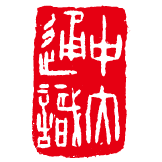UGEA2180 Chinese Culture and Society
Time
Lecture: Wednesdays 01:30 p.m. - 03:15 p.m.
Tutorial: Wednesdays 03:30 p.m. - 04:15 p.m.; 04:30 p.m. - 05:15 p.m.; or 06:30 p.m. - 06:15 p.m.
Course Description
(UGEA2180 is double-coded with ANTH2410.)
This course provides an anthropological approach to examining Chinese culture and society. Some of the key questions we raise include: What does it mean to be Chinese? What role does culture play in being Chinese, and what constitutes Chinese society? Our emphasis is on the dominant cultural practices of societies around the world that render them ‘Chinese’.
The course will also situate contemporary China historically within the world-system and examine the dramatic transformations it has undergone as a result of the post-Mao reforms beginning in the late-1970s. Because China has become the world’s most dynamic growth-engine since these reforms were launched, the Chinese experience offers itself as a case-study of the benefits as well as challenges thrown up by modern development.
Since China has committed to implementing the 2030 development agenda, including Sustainable Development Goals (SDGs) such as clean water, affordable clean energy, and climate action, this course will offer students the opportunity to familiarize themselves with the discourse of sustainability as articulated by the SDGs. But more than that, with specific reference to the experience of the People’s Republic of China in particular, the course will afford students the opportunity to reflect upon the apparent contradictions existing between what is understood to be ‘development’ on the one hand and ‘sustainability’ on the other.
Learning Outcome
Upon completing this course, students should be able to:
- explain why claims about being Chinese and Chineseness can be such a source of contention.
- explain why there are similarities as well as differences across different Chinese societies.
- historically as well as anthropologically account for the place of contemporary China within the world-system.
- critically discuss the major features and social institutions of Maoist and post-Mao China.
- discuss the Sustainable Development Goals (SDGs), their significance in our times, and how ‘sustainability’ challenges ideas of development in general and Chinese development specifically.
- critically evaluate which of the 17 SDGs are realized – or compromised by - the Chinese development experience.






